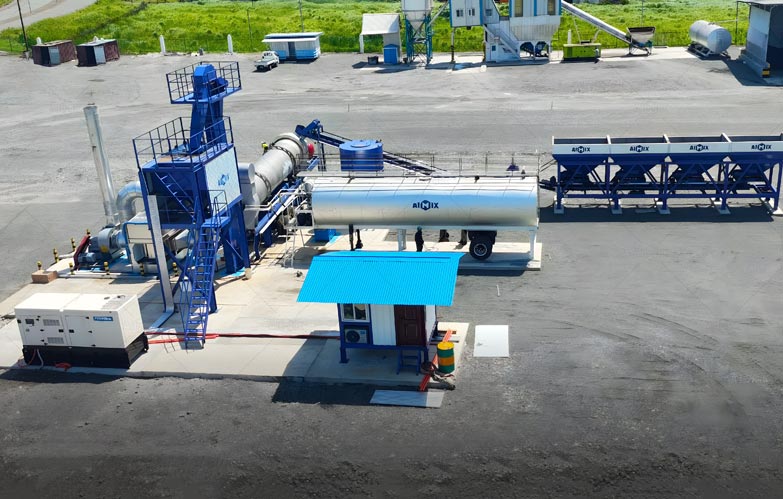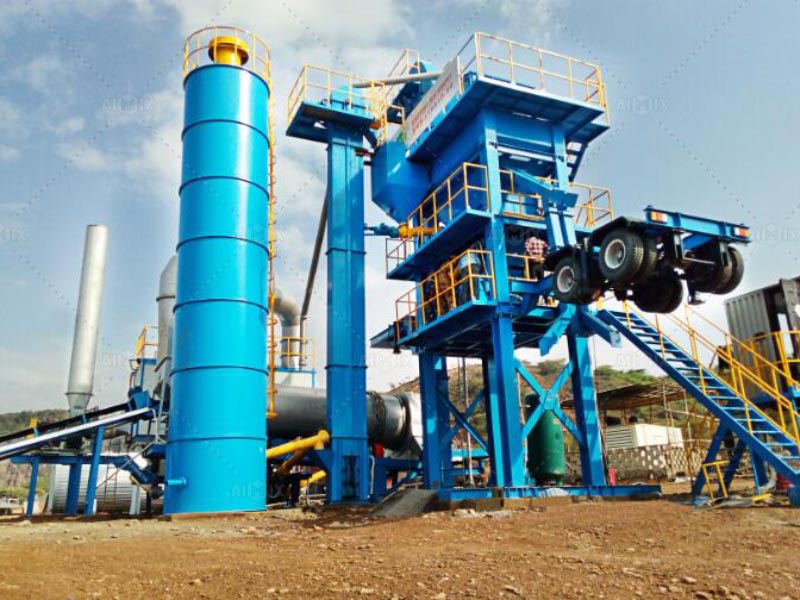Producing high-quality asphalt requires more than just efficient machinery. The processes of handling heated aggregates and ensuring accurate weighing are critical to meeting project specifications. For a mobile asphalt plant, maintaining quality under demanding conditions is essential, especially when operating in diverse environments such as remote construction sites or growing markets like the asphalt plant in Peru. Advanced systems for aggregate handling and weighing make it possible to guarantee durability, consistency, and compliance with international standards.

The role of high-temperature aggregate handling
Aggregates are the foundation of asphalt production. In any mobile asphalt plant(planta asfaltica movil), they must be heated, dried, and transported without contamination or heat loss. High-temperature handling ensures that moisture is removed effectively and that materials remain within the required temperature range. If aggregates cool prematurely, it can compromise the asphalt mix, leading to weak pavement structures and costly repairs.
Drying and heating aggregates
One of the most important stages in asphalt production is drying. Aggregates contain varying levels of moisture, and heating them to the correct temperature ensures optimal bonding with bitumen. In a small asphalt plant, efficient burners and dryers are used to manage this process without excessive fuel consumption. Larger mobile units employ drum or batch dryers, ensuring uniform heat distribution and energy efficiency.
Maintaining consistent temperature
Consistent temperature is crucial to asphalt quality. If aggregates are overheated, it can damage the material and increase emissions. If they are underheated, the final mix may fail to meet strength standards. Modern mobile asphalt plant designs integrate automatic temperature control systems that monitor and adjust heating in real time, ensuring every batch meets quality requirements.
The importance of high-precision weighing
Precise weighing of aggregates, bitumen, and fillers is the backbone of quality control in asphalt production. Even minor deviations in measurement can alter mix proportions, resulting in uneven pavement surfaces, premature cracking, or structural failure. For regions investing heavily in infrastructure, such as with an asphalt plant in Peru, accurate weighing systems are vital for long-term road durability.
Automated weighing systems
Traditional weighing systems are prone to operator error and inconsistencies. Today, automated weighing technologies use sensors and computer-controlled systems to eliminate guesswork. In a small asphalt plant(planta de asfalto pequeña), compact weighing units allow precise batching while maintaining flexibility for smaller projects. In larger mobile plants, integrated weighing systems ensure consistent quality across multiple production cycles.
Load cell technology
Modern asphalt plants rely on load cell technology to deliver precise measurements. These devices convert mechanical force into electrical signals, ensuring accurate weight readings even under tough conditions. Load cells play a critical role in maintaining the exact ratios of aggregates, bitumen, and additives required in both continuous drum and batch mixing processes.

Integration of handling and weighing systems
High-quality asphalt production is not just about heating and weighing independently—it is about integrating these processes into a seamless operation. A mobile asphalt plant(planta asfaltos) combines conveyor systems, dryers, silos, and weighing scales under advanced control software. This integration allows operators to monitor aggregate temperature and weight in real time, ensuring every mix complies with design specifications.
Benefits of system integration
- Improved quality consistency across all mixes
- Reduced material waste and operational costs
- Higher compliance with international quality standards
- Better adaptability to diverse project requirements
Applications in global markets
Across Latin America, infrastructure development is driving demand for efficient asphalt production. An asphalt plant in Peru(planta de asfalto en Perú), for example, must handle projects in diverse climates—from coastal regions to high-altitude construction sites in the Andes. In these challenging environments, precise aggregate handling and weighing ensure that mobile plants can deliver reliable results under varying conditions.
Small asphalt plant for local projects
Not all projects require large-scale facilities. A small asphalt plant is ideal for rural or municipal works, where mobility and flexibility are more important than volume. With integrated weighing and temperature control systems, even these compact plants can guarantee high-quality asphalt production while keeping operating costs manageable.
Future trends in asphalt plant technology
The next generation of asphalt production will focus on digitalization and sustainability. Remote monitoring, cloud-based data storage, and AI-driven process optimization are already being introduced in advanced plants. For mobile asphalt plant operators, these technologies promise greater efficiency, reduced emissions, and improved compliance with environmental regulations. In growing markets like Peru, adopting these advancements will help local industries meet both infrastructure needs and sustainability goals.
Conclusion
High-temperature aggregate handling and high-precision weighing are the cornerstones of quality assurance in asphalt production. Whether using a mobile asphalt plant, a small asphalt plant, or a large industrial facility, these processes ensure that every mix meets strict performance and durability standards. For regions investing in infrastructure, such as through an asphalt plant in Peru, adopting advanced handling and weighing technologies is essential to building roads that last. By integrating efficiency, precision, and sustainability, modern asphalt plants are shaping the future of reliable road construction worldwide.